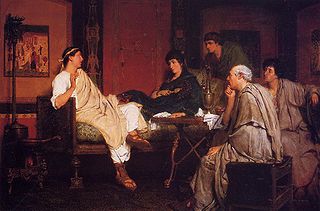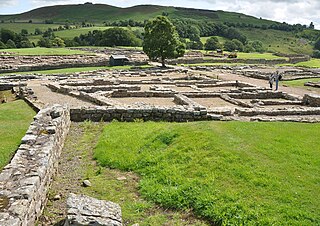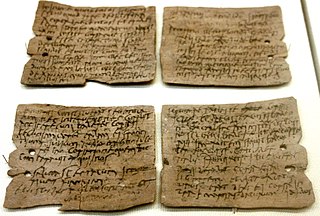Other
- Sulpicia (gens), ancient patrician family of Rome
- Sulpicia (bug), a genus of bugs in the family Coreidae
- Ala Sulpicia, a cavalry unit in the Roman army
Sulpicia may refer to:
Year 14 BC was either a common year starting on Thursday or Friday or a leap year starting on Wednesday, Thursday or Friday of the Julian calendar and a common year starting on Tuesday of the Proleptic Julian calendar. At the time, it was known as the Year of the Consulship of Crassus and Lentulus. The denomination 14 BC for this year has been used since the early medieval period, when the Anno Domini calendar era became the prevalent method in Europe for naming years.
Diocles may refer to:

Albius Tibullus was a Latin poet and writer of elegies. His first and second books of poetry are extant; many other texts attributed to him are of questionable origins.
Servius Sulpicius Rufus, was a Roman orator and jurist. He was consul in 51 BC.
The gens Sulpicia was one of the most ancient patrician families at ancient Rome, and produced a succession of distinguished men, from the foundation of the Republic to the imperial period. The first member of the gens who obtained the consulship was Servius Sulpicius Camerinus Cornutus, in 500 BC, only nine years after the expulsion of the Tarquins, and the last of the name who appears on the consular list was Sextus Sulpicius Tertullus in AD 158. Although originally patrician, the family also possessed plebeian members, some of whom may have been descended from freedmen of the gens.
Marcus Valerius Messalla Corvinus was a Roman general, author, and patron of literature and art.
Sulpicia is believed to be the author, in the first century BCE, of six short poems written in Latin which were published as part of the corpus of Albius Tibullus's poetry. She is one of the few female poets of ancient Rome whose work survives.

Claudia Severa was a literate Roman woman, the wife of Aelius Brocchus, commander of an unidentified fort near Vindolanda fort in northern England. She is known for a birthday invitation she sent around 100 AD to Sulpicia Lepidina, wife of Flavius Cerialis, commander at Vindolanda. This invitation, written in ink on a thin wooden tablet, was discovered in the 1970s and is probably the best-known item of the Vindolanda Tablets.
Virgilia may refer to:

De Mulieribus Claris or De Claris Mulieribus is a collection of biographies of historical and mythological women by the Florentine author Giovanni Boccaccio, composed in Latin prose in 1361–1362. It is notable as the first collection devoted exclusively to biographies of women in post-ancient Western literature. At the same time as he was writing On Famous Women, Boccaccio also compiled a collection of biographies of famous men, De Casibus Virorum Illustrium.

The Vindolanda tablets were, at the time of their discovery, the oldest surviving handwritten documents in Britain. They are a rich source of information about life on the northern frontier of Roman Britain. Written on fragments of thin, postcard-sized wooden leaf-tablets with carbon-based ink, the tablets date to the 1st and 2nd centuries AD. Although similar records on papyrus were known from elsewhere in the Roman Empire, wooden tablets with ink text had not been recovered until 1973, when archaeologist Robin Birley, his attention being drawn by student excavator Keith Liddell, discovered some at the site of Vindolanda, a Roman fort in northern England.

Sulpicia was the wife of Quintus Fulvius Flaccus and earned everlasting fame when she was determined to be the most chaste of all the Roman matrons.

Marcia Furnilla was a Roman noblewoman who lived in the 1st century. Furnilla was the second and last wife of the future Roman Emperor Titus as well as the aunt of the future emperor Trajan.
Sulpicia Lepidina was the wife of Flavius Cerialis, prefect of the Ninth Cohort of Batavians, stationed at Vindolanda in Roman Britain in the early 2nd century AD. She is known from her correspondence, including a birthday invitation she received from Claudia Severa.

Augustan literature refers to the pieces of Latin literature that were written during the reign of Caesar Augustus, the first Roman emperor. In literary histories of the first part of the 20th century and earlier, Augustan literature was regarded along with that of the Late Republic as constituting the Golden Age of Latin literature, a period of stylistic classicism.
Quintus Sulpicius Camerinus Peticus was a Roman senator during the reign of Nero.
Quintus Pompeius Sosius Falco was a Roman senator, who was active during the reign of Commodus. He was consul ordinarius in 193 with Gaius Julius Erucius Clarus Vibianus as his colleague.
Sulpicia was an ancient Roman poet who was active during the reign of the emperor Domitian. She is mostly known through two poems of Martial; she is also mentioned by Ausonius, Sidonius Apollinaris, and Fulgentius. A seventy-line hexameter poem and two lines of iambic trimeter attributed to her survive; the hexameters are now generally thought to have been a fourth- or fifth-century imitation of Sulpicia. Judging by the ancient references to her and the single surviving couplet of her poetry, Sulpicia wrote love poetry discussing her desire for her husband, and was known for her frank sexuality.
Sulpicius Galba may refer to:
The Garland of Sulpicia, also sometimes known as the Sulpicia cycle or the Sulpicia-Cerinthus cycle, is a group of five Latin love poems written in elegiac couplets and included in volume 3 of the collected works of Tibullus. The five poems concern a love affair between a girl Sulpicia and a young man Cerinthus. They are followed in the collection by a further group of six short elegies ostensibly written by Sulpicia herself describing the same affair.